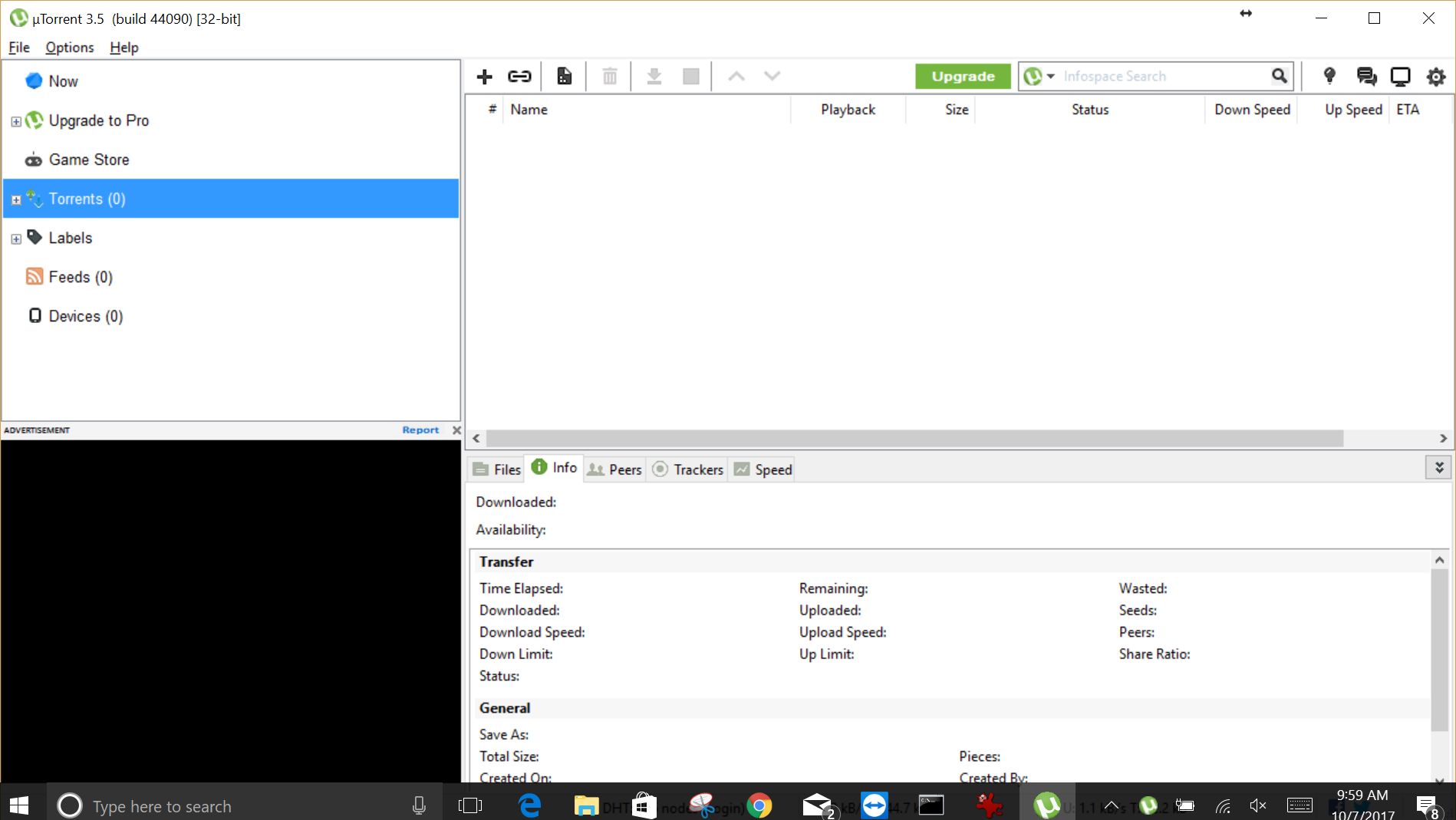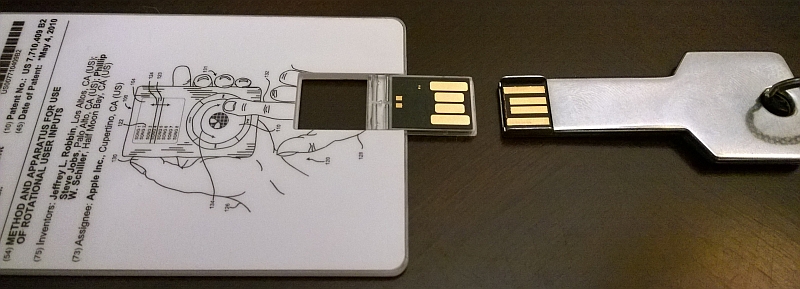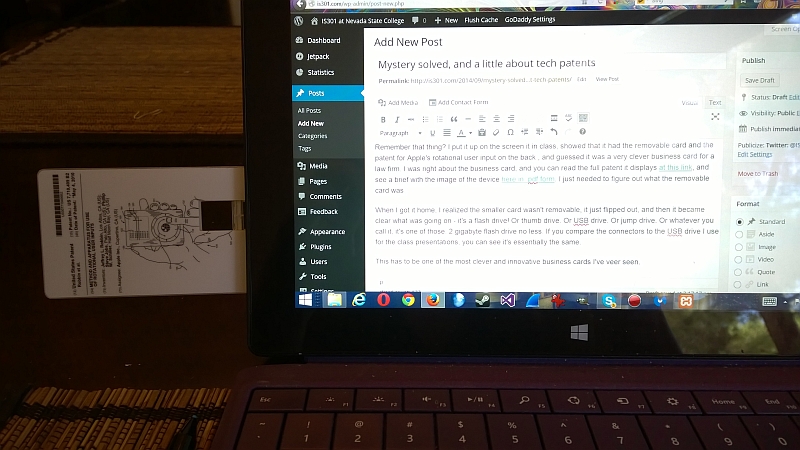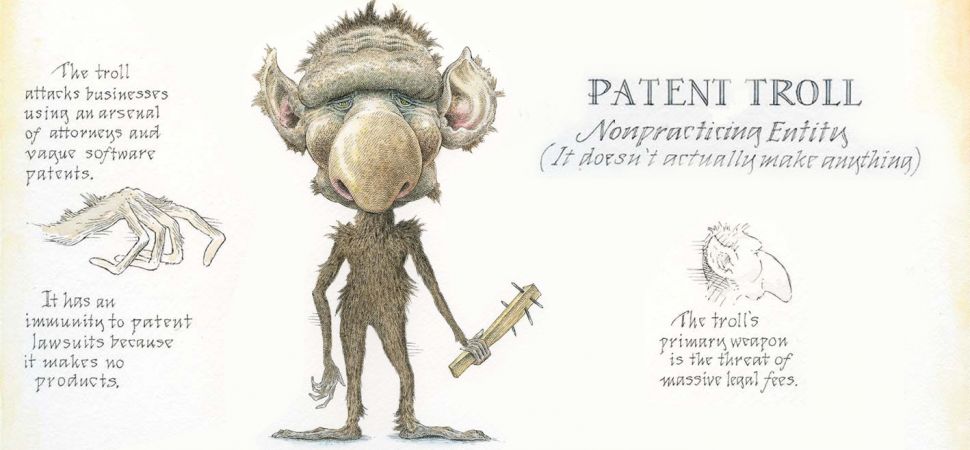Tag Archives: Copyright
It finally happened
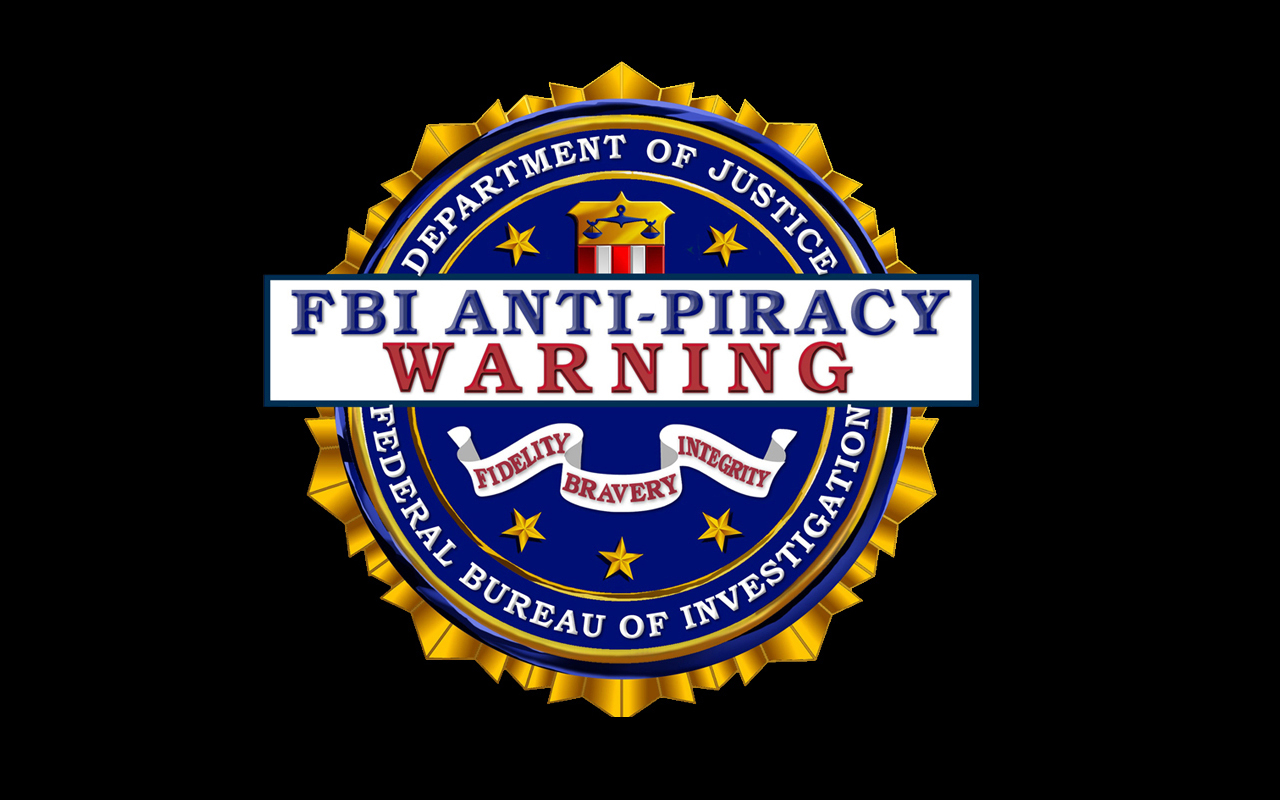
I have the feeling this story could get convoluted. Let me sum up right at the beginning: I have finally received a threatening letter accusing me of copyright infringement, from the Entertainment Software Association (ESA). Some background:
I have been playing vanilla WoW, off and on, for months on a private server known as Elysium-Project. I wrote about the experience not too long ago right here on this site (we’ll get to Felmyst later in this post). The thing about this server is that in order to download the client you have to do so through a torrent, which right away gives the impression of impropriety. I had downloaded it once before, using the uTorrent client, to use on my desktop, and everything seemed above the board.
Recently, though, I downloaded it again, using the exact same torrent client, however this time it was on my laptop. Immediately, even before the file finished downloading, I received the following email from my ISP, Cox Communications:
Dear Customer,
We are forwarding a notice received by Cox Communications which claims that someone using your Cox High Speed Internet service has violated U.S. Copyright law by copying or distributing the copyrighted work listed in the attached complaint. THIS COMPLAINT IS FROM A THIRD PARTY AND NOT FROM COX COMMUNICATIONS. We have included a copy of the complaint, which identifies the party making the claim, the title or work they claim was infringed, and the date of the alleged infringement.
We ask that you review the complaint and, if you believe it is valid, promptly take steps to remove or disable access to the infringing material (typically movies, music, books, or TV shows). If other parties are using your account, such as through your WiFi connection, you should ask them to disable file-sharing in peer to peer applications such as BitTorrent, or delete the copyrighted works.
If you disagree with the claims and believe that no one using your Internet service could have been the source of the alleged infringement, please do not contact Cox Communications to resolve this matter. Cox is simply forwarding the notice to you. However, if you have WiFi, please make sure your WiFi connection is secured with a strong password to prevent unauthorized use of your Internet service. In addition, make sure anti-virus software is installed and up to date to help prevent malware infections.
PLEASE NOTE: THE ATTACHED NOTICE MAY CONTAIN A SETTLEMENT DEMAND FOR MONEY OR OTHER TYPE OF OFFER FOR YOU TO CONSIDER. YOU MAY WANT TO CONSULT WITH AN ATTORNEY REGARDING YOUR RIGHTS AND RESPONSIBILITIES BEFORE CLICKING ON ANY LINK OR VISITING A WEBSITE LISTED IN THE NOTICE.
The material that you share online or make available for sharing is your responsibility. Cox encourages responsible Internet use, but we do not monitor nor control the information you transmit. We have a policy, however, consistent with the Digital Millennium Copyright Act, to take steps when we receive notifications of claimed infringement. We also have a policy of terminating repeat infringers in compliance with the Digital Millennium Copyright Act Safe Harbor for online service providers.
If we continue to receive infringement claims notices for your account, we may in appropriate circumstances suspend your account, disable your Internet connection, and/or terminate your Internet service.
For information about Cox’s Acceptable Use Policy, including copyright infringement, please refer to:
https://www.cox.com/aboutus/policies.htmlTo learn more about your responsibilities concerning copyrighted material, please refer to our help article at:
https://www.cox.com/copyrightGeneral information & FAQs about DMCA notices:
http://www.respectcopyrights.org/
http://www.riaa.com/toolsforparents.php?content_selector=resources-music-copyright-notices
If you would like to reply to this email, please keep the subject line intact for tracking purposes.
Sincerely,
Cox Customer Safety
— Original Message —
[Part 0:0 (plain text)]
—–BEGIN PGP SIGNED MESSAGE—–
Hash: SHA12017-10-07T03:15:10Z
Entertainment Software Association
601 Massachusetts, NW, Suite 300, West
Washington, DC 20001 USAAttention:
Intellectual Property Enforcement
Website: http://www.theesa.com/wp-content/uploads/2014/12/DMCA-FAQs-Updated-12-2014.pdf
E-mail:
[email protected]Cox Communications
Re: Copyright Infringement by Cox Communications Subscriber
Using IP 98.164.255.62 on 2017-10-07T03:14:58Z (the “Subscriber”)
Reference Number c7ed1b3845618ac0d707Dear Cox Communications:
The Entertainment Software Association (“ESA”) is the U.S. trade association that represents the intellectual property interests of companies that publish interactive games for video game consoles, personal computers, handheld devices, and the Internet (hereinafter collectively referred to as “ESA members”).
A list of ESA members can be found at http://www.theesa.com/about-esa/members/.
Under penalty of perjury, we affirm that ESA is authorized to act on behalf of ESA members whose exclusive copyright rights we believe to have been infringed as described below.ESA is providing this notice pursuant to the Digital Millennium Copyright Act (“DMCA”), 17 U.S.C. section 512, to request that you take immediate action with respect to infringement of ESA member copyrighted works by your Subscriber.
Using the IP address on the date and time referenced in the subject line of this notice, the Subscriber or someone using their account employed a peer-to-peer service or software to distribute one or more infringing copies of ESA members’ games, including the following title:Warcraft (franchise)
Courts in the United States have held consistently that the unauthorized distribution of copyrighted works using peer-to-peer or similar services constitutes copyright infringement.
E.g., MGM Studios, Inc. v. Grokster, Ltd., 545 U.S. 913 (2005); BMG Music v. Gonzalez, 430 F.3d 888, 891 (7th Cir. 2005); Arista Records LLC v. Lime Group LLC, 2010 U.S. Dist. LEXIS 46638, *49 (S.D.N.Y. May 11, 2010This Subscriber should understand clearly that there are serious consequences for infringement.
The Copyright Act in the United States provides for statutory damages of up to $30,000 per work infringed, and up to $150,000 per work for willful infringement.
17 U.S.C. section 504(c).We ask that you work with us to protect the intellectual property rights of ESA members by:
1. Providing the Subscriber with a copy of this notice of copyright infringement, and warning the Subscriber that his or her conduct was unlawful and could be subject to civil or even criminal prosecution.
2. Promptly taking steps to stop the Subscriber’s infringing activity.
3. Pursuant to 17 U.S.C. section 512(i)(1)(A), as appropriate, terminating the account of the Subscriber if your records show that he or she is a repeat copyright infringer.ESA has a good faith belief that the Subscriber’s reproduction and/or distribution of these copyrighted works as set forth herein is not authorized by the copyright owners, their agents, or the law.
The information in this notification is accurate.
Neither ESA nor its members waive any claims or remedies, or their right to engage in other enforcement activities, and all such claims, rights and remedies are expressly reserved.If your Subscriber has additional questions about this notice, we would encourage them to visit http://www.theesa.com/wp-content/uploads/2014/12/DMCA-FAQs-Updated-12-2014.pdf to learn how to delete the infringing material and avoid receiving future notices.
Thank you for your prompt attention to this matter.
Sincerely,
Intellectual Property Enforcement
Entertainment Software Association
Website: http://www.theesa.com/wp-content/uploads/2014/12/DMCA-FAQs-Updated-12-2014.pdf– ————- Infringement Details ———————————-
Title: Warcraft (franchise)
Timestamp: 2017-10-07T03:14:58Z
IP Address: 98.164.255.62
Port: 33768
Type: BitTorrent
Torrent Hash: 2b32e64f6cd755a9e54d60e205a9681d6670cfae
Filename: World of Warcraft 1.12 Client.rar
Filesize: 5197 MB
– ———————————————————————<?xml version=”1.0″ encoding=”UTF-8″?>
<Infringement xmlns=”http://www.acns.net/ACNS” xmlns:xsi=”http://www.w3.org/2001/XMLSchema-instance” xsi:schemaLocation=”http://www.acns.net/ACNS http://www.acns.net/v1.2/ACNS2v1_2.xsd“>
<Case>
<ID>c7ed1b3845618ac0d707</ID>
<Status>Open</Status>
<Severity>Normal</Severity>
</Case>
<Complainant>
<Entity>Blizzard Entertainment, Inc.</Entity>
<Contact>IP-Echelon – Compliance</Contact>
<Address>6715 Hollywood Blvd
Los Angeles CA 90028
United States of America</Address>
<Phone>+1 (310) 606 2747</Phone>
<Email>[email protected]</Email>
</Complainant>
<Service_Provider>
<Entity>Cox Communications</Entity>
<Email>[email protected]</Email>
</Service_Provider>
<Source>
<TimeStamp>2017-10-07T03:14:58Z</TimeStamp>
<IP_Address>98.164.255.62</IP_Address>
<Port>33768</Port>
<Type>BitTorrent</Type>
<SubType BaseType=”P2P” Protocol=”BITTORRENT”/>
<Number_Files>1</Number_Files>
</Source>
<Content>
<Item>
<TimeStamp>2017-10-07T03:14:58Z</TimeStamp>
<Title>Warcraft (franchise)</Title>
<FileName>World of Warcraft 1.12 Client.rar</FileName>
<FileSize>5450407230</FileSize>
<Hash Type=”SHA1″>2b32e64f6cd755a9e54d60e205a9681d6670cfae</Hash>
</Item>
</Content>
</Infringement>
—–BEGIN PGP SIGNATURE—–
Version: GnuPG v1iQEcBAEBAgAGBQJZ2Ea9AAoJEN5LM3Etqs/WBF0H/jpN7FftxC1K3kUH9j6jG4IZ
A7abndRK8UZISWGRCmT0Tj7+itlRmvzwo9/ggZl9RxiuIPR8KCr/cHTgIbcimjni
ycdjkB6kLOi6FHOA8FybJCVdLK/hMlVvKum/WG4j4oaYBf0LEtowXM1DT1XU7GEy
0F8gUaL5waoJjXuZsA/p88LUhb3Wpmx4BQ6CpzXo96We/JDd+rIApkUsEq56m71s
4Qy5gK3VQVvd3DxqEFZEfU984RBYB3j8i3RCRrHssLUUa4L02Gp3AYpc0szmcOQ8
ZZAtJTOjkCmBUllxo9LNCwgDDQwtybL/QedED4+amO2h7tlLoYfZtuH6qRshpLM=
=iSCJ
—–END PGP SIGNATURE—–
There’s a lot there, but essentially what it is saying is that I committed a copyright infringement not by downloading the Warcraft client, but by also allowing it to be seeded and therefore distributing it. It’s like drug enforcement; the dealers are the problem much more so than the users.
I also have to say I find some amusement in the otherwise serious nature of this email, in that while the complaint from the ESA was very serious and implied significant fines, federal crime, even possible jail sentences, the portion from Cox essentially says “Hey, this is what we were told, now keep us out of it.”
The fact that it came in late on a Friday night while the file was still downloading also makes it quite clear the whole process was automated, both the email to Cox and their forwarding it on to me.
I blame myself for part of this as I never thought to switch off seeding, and when I tried to connect to the private Elysium server after the client download was complete, I neglected to modify what’s known as a realmlist.wtf file to point to Elysium’s server as opposed to the stock Warcraft server. That means that I was attempting to connect directly to Blizzard at first. That’s not what the complaint was about, it was about the redistribution of their client via torrent, but the fact I made that connection error at first was not lost on me.
I don’t anticipate any major problem from this. The second the file was done downloading I deleted the original torrent file and shut down the torrent client. I don’t like to use my limited bandwidth to seed the downloads of others, and I don’t have anything they would want anyway, especially not on my laptop.
So I am ignoring it for now, and in fact I have done what they asked (demanded) I do. It also leads to an interesting legal issue: If you read my previous post about my early experiences on Elysium, you would know that there had been another private server, Felmyst, that was shut down on its very first day, apparently because they were distributing the client along with the game files (or something like that). Elysium, on the other hand, is able to stay up and running because they don’t distribute the client, and therefore no copyright violations are taking place. That seems strange to me since we are playing on a server that uses entirely Blizzard-created assets, but who knows. A quick Google search indicates I’m far from the only one experiencing this, and the issue of monetary gain versus non-profit can have serious implications and Blizzard’s perspective isn’t always so black and white. They’re both very interesting reads.
What I can surmise is, and as I stated earlier, using the client/game once downloaded, even downloading the client itself, is not illegal; it’s the redistribution that’s the problem.
Don’t redistribute clients via torrent, people.
Victory!

Those of you who were following this blog in the fall 2014 semester may remember that when I uploaded an episode of Aqua Teen Hunger Force to YouTube over the Thanksgiving break, I was immediately notified by YouTube and Cartoon Network that the video had been taken down, that I had committed a copyright violation, was threatened with a lawsuit six different times, had to attend ‘copyright school,’ and had severe restrictions placed on the account, restrictions that would all but negate its utility as a pedagogical tool. If you’d like to be brought up to speed, you can read my original post complete with fully-documented screenshots about the ordeal at this link. It’s scary stuff, worth a read.
I was given only 200 characters in which to submit my rebuttal, which I did to both YouTube *and* Cartoon Network (the owners of Aqua Teen Hunger Force), explaining the upload was covered by fair use doctrine, that it was for educational as well as entertainment value, and that it presented topics we discuss in class in a novel way that I felt would engage students. I indicated the video did not need to be reinstated, but the restrictions should be lifted as they were unreasonably punitive.
A few weeks went by, I didn’t hear anything, so I resubmitted my appeal and indicated I would escalate (meaning consider legal action) if I didn’t get a response.
Well guess what! I just received an email from YouTube that states the following:
New YouTube Copyright Counter Notification
Fri 1/9/2015 6:06 PMTo:
Darren Denenberg;Hello,In accordance with the Digital Millennium Copyright Act, we’ve completed processing your counter-notification regarding these video(s):
- http://www.youtube.com/watch?v=UOARq9kIwPM
This content has been restored unless you have deleted the video(s). Your account will not be penalized.
Regards,
The YouTube Legal Support Team
Not bad! A victory for the little guy, and vindication of my intent and purpose for uploading the video in the first place. Now, to upload Star Wars in its entirety.
I kid, I kid. (Or do I?)
Oh no you don’t (Updated – it gets worse, then slightly better)
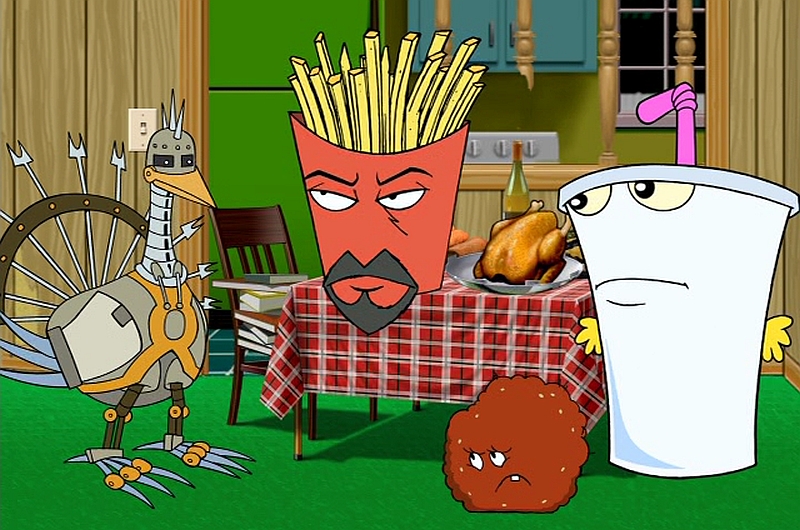
Another Thanksgiving-related post, and my first ever take down notice! Last Thursday, since it was turkey-day, and since we talk about robots in class, and since Carl Brutananadilewski was our mascot for the chapter on e-commerce, I thought I would post the Aqua Teen Hunger Force episode titled ‘The Dressing.’
This episode revolves around a robot turkey who comes from the future to take Carl, who it turns out is a hyper-evolved chicken from the future, back to save the robot turkeys from annihilation by their chicken overlords. Or something like that. Honestly, it’s a little hard to follow
In order to make it easy to embed in a post, I uploaded it to YouTube who instantly informed me that even though I had set the video to ‘Unlisted,’ it contained copyrighted material and may be in violation of copyrights.
Mystery solved, and a little about tech patents
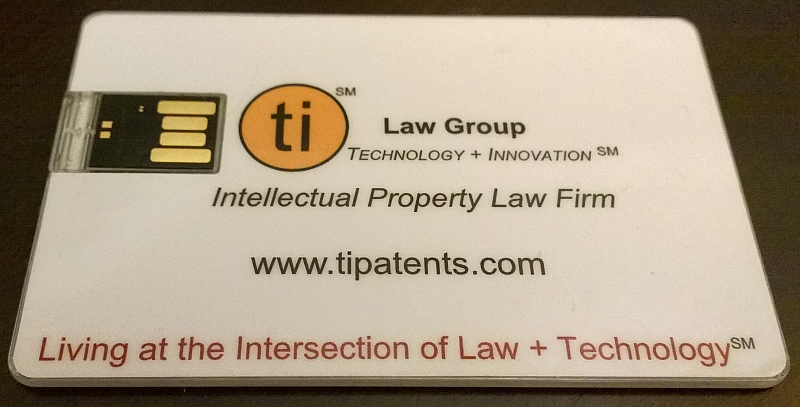
Remember that thing? Jet brought it in, I put it up on the screen in class, showed that it had the removable card and the patent for Apple’s rotational user input on the back , and guessed it was a very clever business card for a law firm that deals with patents and intellectual property. I was right about the business card, and you can read the full patent it displays at this link, and see a brief with the image of the device here in .pdf form. I just needed to figure out what the removable card was.
When I got it home, I realized the smaller card wasn’t removable, it just flipped out, and then it became clear what was going on – it’s a flash drive! Or thumb drive. Or USB drive. Or jump drive. Or whatever you call it, it’s one of those. 2 gigabyte flash drive no less, and even comes with a .pdf primer on patents – try saying that three times fast. If you compare the connectors to the USB drive I use for the class presentations, you can see it’s essentially the same. To be specific, it’s what’s known as a ‘Type A‘ connector even though it’s not enclosed as is typical. The two center pins are the channels through which data is transferred, and as is very common with data channels of all types, one is positive and one is negative.
This has to be one of the most clever and innovative business cards I’ve ever seen, it’s very inventive and frankly I plan on using it as an example in future classes. Plus, I can use it, and if it’s ever lost or stolen someone would be afraid to use it because it’s from a law firm! Well, maybe that wouldn’t deter them, but it’s an added layer of security. It’s so light it can be used without support, as you can see in this (very dark) image that shows it plugged into the side USB port of my Surface.
But because this is the business card of a patent law firm, it also lets me offer an introduction to the idea of intellectual property, trademarks, and patents in the tech industry. I don’t want to go too deep into it now because we have a whole class covering the topic and we will talk a lot about it towards the end of the semester, although in a way the conversation has already begun. In essence, when we talk about intellectual property (IP) or patents, what we mean is something you create or develop or invent and the establishment of your ownership of that creation, or design, or process, or thing, or whatever it is. This often takes the form of licensing fees, which is standard practice; For every Blu-Ray disc or player manufactured, Sony gets a fee. For every Android handset sold, Microsoft gets a fee. For (almost) every HTC phone sold, Apple gets a fee. And the list goes on and on.
There has been a big debate over what is and isn’t patentable, what should and shouldn’t be patentable, and what to do if you feel someone is using your idea without recognition or compensation. If you don’t think it could possibly be that big of an issue, remember that for some companies, their most lucrative – or only – product is its patents and patent portfolio.
So important are patents and the revenue they can generate, especially in the tech industry, that lawsuits happen ALL THE TIME. I’m normally against using bulleted lists for anything when writing, but I think here it’s warranted. Behold, just a few of the recent, and one not-so-recent, tech-industry patent/trademark/IP fights that have happened:
- Apple sues Samsung
- Samsung sues Apple
- Microsoft sues Samsung
- The Beatles sue Apple
- Oracle sues Google
- Apple and Microsoft sue Google
- Google sues Apple (Like all good wars, this actually ended in a truce)
- Google sues Microsoft
- Microsoft and Google sue the government (not a patent issue, just thought I’d throw it in there)
- NVidia sues Samsung *and* Qualcomm
- Bose even sued Beats
These are all recent, and only a few, but this has been going on for years. Many years. This link has 1188 pages of tech-industry patent and trademark lawsuits, and it only goes back to 2003! In fact, according to legal analytics firm Lex Machina, the top 10 targets of patent lawsuits in 2013 were tech firms, with Apple at the top of the list.
Even so, if you have developed something that makes a significant contribution to society, science or industry, you need to fight to keep that patent under your wing and in your portfolio, especially if it’s widely used. I like to think that most companies aide by patent laws (in fact, I was just today reading an article on Tom’s Hardware about building a budget PC, and the liquid-cooling unit they recommend hasn’t been released yet in the U.S. because of unspecified patent issues and a required redesign based on them).
However if you don’t watch your patents carefully, less scrupulous actors could hijack them and claim them as their own, or not pay the licensing fees, or make a knockoff and claim it as original. This also leads to a discussion of something very nefarious in the discussion of patents, something known as patent trolls; companies that create no products, but rather endlessly sue everyone, using questionable legal tactics, over patents they supposedly own. Luckily, they usually get slapped down pretty hard. Prenda Law is the most well-known and loudmouthed patent troll, although because of repeated and brutal defeats in court they’re somewhat quiet as of late. There are others, but it appears what happened to Prenda has made them afraid, with good reason. There are even sort-of patent trolls. The fact is, justified or not, it can be lucrative.
There have been loud calls for reform of patent laws. For example, some say it shouldn’t be possible to patent, say, rounded corners, or taking a photograph of something in front of a white background, or patent something that has been standard practice for centuries but now you’re “doing it on a computer,” which the Supreme Court has said is not enough. It’s very complex and convoluted, and from what I can tell it doesn’t appear there will be a change anytime soon.
I don’t mean to imply that all patent lawsuits are frivolous, not at all; patent ownership is important for the people who own patents. But as patent trolls illustrate, many of them are frivolous, and it’s unfortunate, because lawsuits like this can really stifle creativity and innovation in that case. It’s just that there are so many, it’s hard to separate what’s legitimate form what’s trolling.
You’ll notice we have a whole class on ‘Ethics, Crime, and Security.’ It is there that we will talk extensively about copyright, intellectual property, trademarks, domain squatting, and the general reality that the Internet has always been a haven for theft of not just goods such as songs or videos, but of ideas and attributions. In any industry it is absolutely vital to watch over your patents and ensure that others who use them, which in the tech industry could be a very large number of players, is doing so within their, and your, rights.

